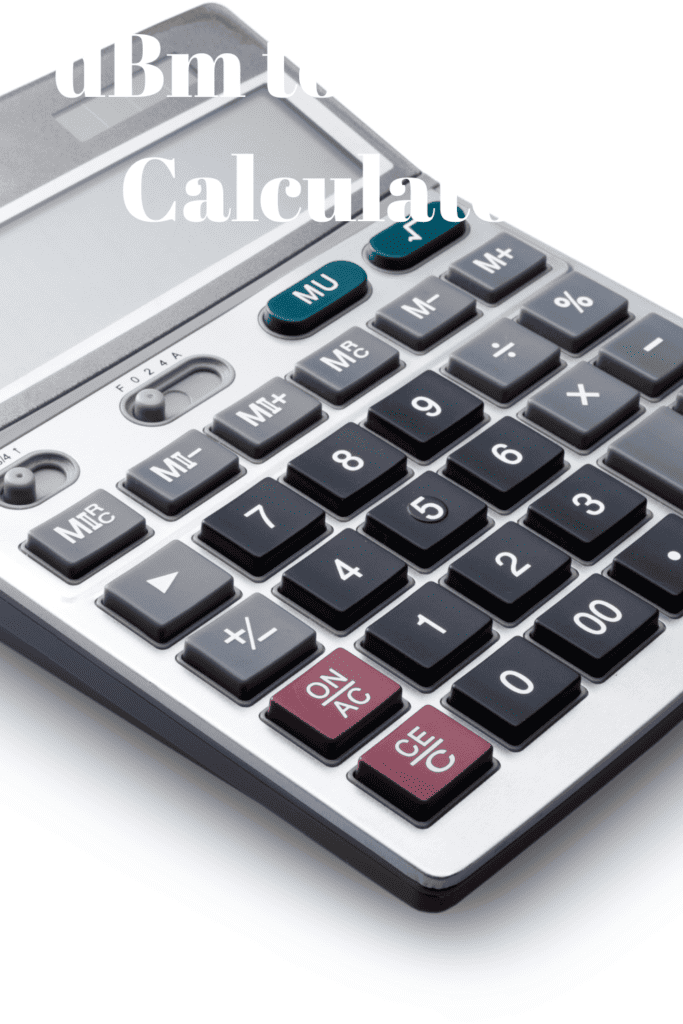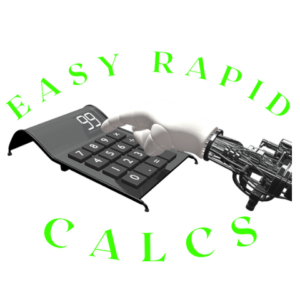dBm to Watts Calculator
Using the dBm to Watts Calculator

The dBm to Watts Calculator converts decibel-milliwatt power levels to absolute watts – providing an easy way of measuring absolute power levels within radio, microwave and fiber-optical networks.
Makes communicating large and small signal strengths simpler. A power level of 0dBm corresponds to 1 milliwatt; every 10-dB rise represents an exponential increase in power output.
Formula
Understanding power measurements when working with electronic devices is vital, particularly when dealing with radio frequency (RF) signals or amplifiers. Luckily, there is a handy calculator called the dBm to Watts Calculator available that makes converting power levels simpler than ever before.
This calculator works by applying a formula that converts decibel-milliwatts (dBm) to watts – much in the same way other power units such as dBm to volts and joules are converted. Simply enter in your dBm value and instantly see its equivalent result displayed as Watts!
A decibel milliwatt (dBm) measures signal strength or power level relative to 1 milliwatt. This unit of measurement is widely used in wireless communications as well as wires and cables used for radio or audio frequencies, with its logarithmic unit making scaling easy up or down in power levels; to convert to Watts from dBm simply multiply logarithm of power level being measured.
This online converter can help you convert dBm values to watts values quickly and efficiently. Simply enter the dBm value into the field on the left-side calculator before selecting an appropriate watts value from the drop-down menu – our dBm to Watts calculator will then automatically calculate its equivalent in Watts value.
Watts is the metric unit for electrical power, defined as one joule of electricity per second. Watts is often used when measuring the power output from radio frequency equipment such as antennas, amplifiers and transceivers; in electronic circuits such as Wi-Fi networks or cell phone signals it may also be seen used this way.
To calculate the watts value of any given dBm signal, multiply its value by 10. This will yield its watts value in decibel-milliwatts; divide this number by 1000 to convert to standard watts before finally adding this figure back in for final calculation. This converter tool makes quick work out of power unit conversion; fast, accurate and straightforward!
dBm
The dBm to Watts Calculator is an online tool designed to convert power measurements quickly. Simply choose the values you wish to convert, and this calculator displays corresponding figures in other fields. Ideal for engineers, technicians, and anyone working with wireless communication systems.
Decibel (dB) is a unit of measurement used to express the ratio between two values, such as signal strength or power levels. Being logarithmic means it has an extremely broad range; hence its usage to measure electronic equipment’s power, voltage, such as cell phone signal boosters. Furthermore it can be used to assess wires and cables used at radio or audio frequencies, signal strength or cable density measurement.
dBm is the standard unit for measuring power in radio, microwave and fiber-optical communication networks. This is because dBm provides a simple way of expressing power relative to 1 milliwatt; one milliwatt equals one dBm; thus 10 dBm increases in level correspond to an increase of 10-fold power output. Furthermore, it’s commonly used by wireless devices like cell phones and tablets when measuring signal strengths.
While it’s tempting to assume that your cell service provider’s signal bars indicate the strength of its network, this isn’t always accurate. Your device manufacturer and type can have an enormous effect on how many signal bars appear on screen at one time. In any event, understanding how signal strength measurement works will enable you to make informed decisions regarding how and when you use your cell phone.
If your cell signal at work or home is weak, consider investing in an in-building signal booster to enhance it and make it more reliable. However, before purchasing one it is essential that you understand how dBm affects signal strength – this calculator allows easy conversion from dBm to watts so you can determine how much power should be produced by your signal booster.
Watts
Wattage measures power usage; in electrical systems it refers to how much electricity is consumed per second. As power increases so does energy use. Wattage measurement provides a useful method of comparing device power output.

Understanding the various units of measurement when working with electrical systems is vitally important, in order to gain a fuller understanding of what information is being sent. A watt is a standard unit of power often utilized alongside volts (V) and amps (A).
Example of power usage. Calculating an appliance’s energy usage involves multiplying its wattage with its voltage consumption; for instance, a computer monitor that consumes 100 watts can be calculated by multiplying this value with 24 or 48. This allows you to gauge energy use of appliances and make informed decisions when it comes to conserving and optimizing energy use.
Decibel-milliwatt (dBmW) is a power ratio measuring signal strength in decibels relative to one milliwatt. This handy unit of measurement is often employed in radio, microwave and audio applications as well as fiber-optic communications networks.
To convert from decibels to watts, enter your decibel value into the calculator above and click “Calculate”. It will then provide an automatic conversion into watts values.
Use this tool to convert dBm into watt hours (Wh). Watt hours measure the total energy consumed by an appliance over time; to calculate them simply multiply power in watts by hours used each day – for instance a television left on for two hours will use up 196 watts.
Knowledge of how to calculate watts will allow you to make more informed energy decisions when purchasing home electronics and appliances, saving both energy and money by better assessing each device’s energy consumption and pinpointing areas where savings may be possible. Acquiring this skill is invaluable and will protect both your home and environment from unnecessary waste.
Tips and Tricks
Use this free tool to easily convert RF power from decibel-milliwatts (dBm) to watts. Just enter the value in dBm into the input field, click “Convert”, and you’re good to go – repeat calculations with different values to get more precise results or use “Reset” to clear previous calculations and start over!
To avoid confusion, it is helpful to understand both dBm and watts concepts separately. dBm is a dimensionless unit used to define signal strength (power level) relative to 1 milliwatt; thus 0 dBm represents one milliwatt power level. Radio, microwave, audio applications as well as fiber-optic communication networks use it frequently for measuring power levels.
Watts are used to measure power or the rate of energy transfer; therefore, the higher its wattage is, the more power is being transferred; for instance, a 100-watt light bulb requires more energy to function than one that uses 60 watts. Watts may be measured in different ways such as volts, amperes or kilowatts but the most commonly used term is “watts,” often used when discussing electrical power.
Converting between these units can be simple. For example, the above dBm to watts calculator uses a simple but straightforward formula: 10 log(power)/1000 which makes converting between these units straightforward and intuitive.
This tool is designed to quickly and accurately convert dBm to watts, while also being useful in calculating signal power level calculations in any other power measurement context. The formula behind converting dBm to watts works reliably in most circumstances.

Utilizing this converter will enable you to easily ascertain the exact number of watts your equipment requires in order to function efficiently, which can be extremely helpful when setting up antennae and amplifier systems in outdoor environments with higher signal levels than indoor environments. Furthermore, having this knowledge can come in handy when purchasing devices with fixed wattage capacities because it may be hard to ascertain how much power these will consume when running at full capacity.
